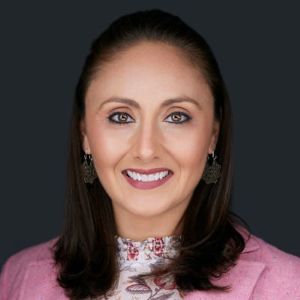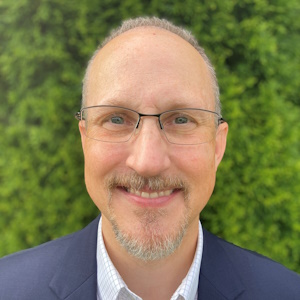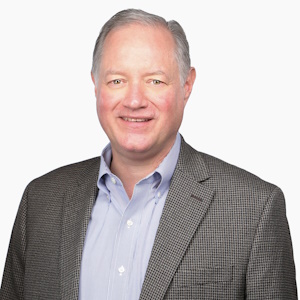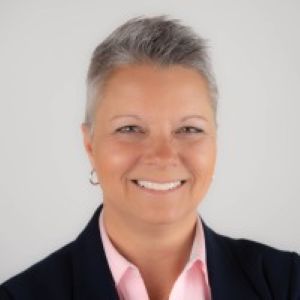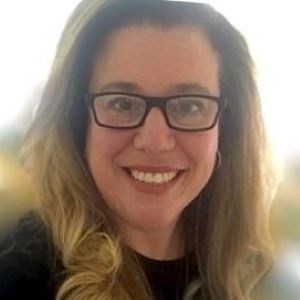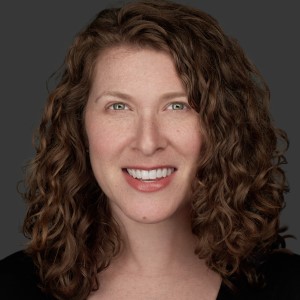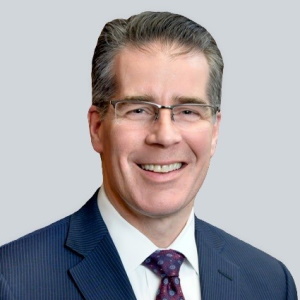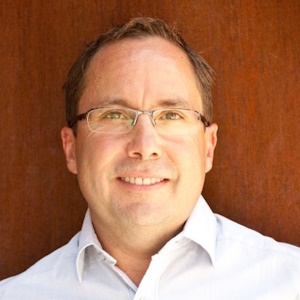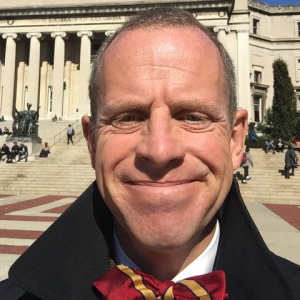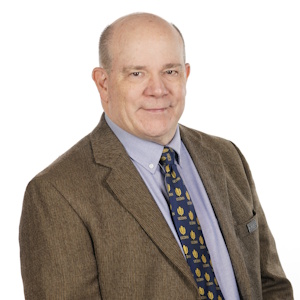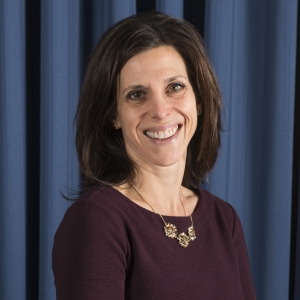Public Service Executive Leadership Collaborative
The Public Service Executive Leadership Collaborative provides high-quality, low-cost training and professional development to individuals working in the state's public and nonprofit sectors. A collaboration between UConn's School of Public Policy and our Connecticut partners, the program provides a shared learning environment that strengthens ties between public sector and nonprofit professionals.
Upcoming Workshop Schedule
Essential Skills for Grant-Writing & Diversified Revenue Streams
With Alyssa Goduti, UConn SPP adjunct professor and President & CEO of Ädelbrook; Beverly Catchpole, Chief Giving Officer of CT Foodshare;
Friday, September 19, 2025
9:00 AM – 4:00 PM (with 30 minute break)
Hartford Times Building, UConn Hartford Campus
The success of any nonprofit or government organization is contingent on its mission, vision, governance, ability to run quality programs, and most importantly on its ability to raise funds. Organizations with the knowledge, skills and expertise to seek out and successfully win grants are more likely to thrive in this increasingly competitive funding environment. The grant-writing session will help you better understand how too identify grant opportunities and develop winning proposals.
In the Diversified Revenue workshop Bev will provide follow up to the morning session by exploring varied revenue streams and fundraising tactics. Much like a diversified financial portfolio, diversified revenue streams enable your organization to weather the ups and downs of internal and external factors that can suddenly reduce your funding. The healthiest organizations rely on many sources or revenue for current funding needs, sustainability of programming, and even provide revenue for the future. Topics will include diversified revenue streams, direct marketing – both digital and direct mail appeals, corporate sponsorships, the role of events, mid-level and major individual gifts, foundation support, planned giving, government grants, and the technology to help drive revenue.
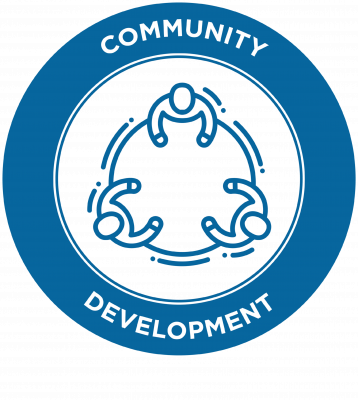 CCM Classification: Community Development
CCM Classification: Community Development
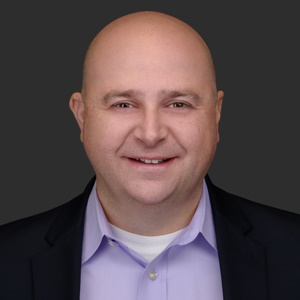
Jason Jakubowski
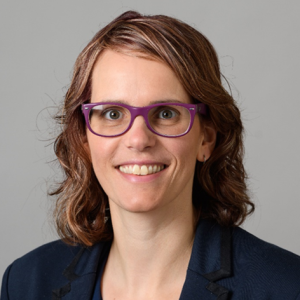
Sarah Croucher
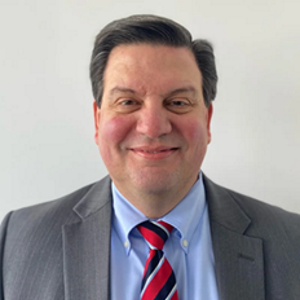
Michael Bzdyra
Promoting Your Mission: Effective Advocacy & Lobbying for Nonprofits and Government Agencies
With Jason Jakubowski (President & CEO, CT Foodshare), Sarah Croucher (Assistant Vice Provost of Academic Affairs, UConn), and Michael Bzdyra (Sr. Lobbyist, FOCUS Government Affairs)
Friday, October 3, 2025
9:00 AM – 4:00 PM (with 30 minute break)
Hartford Times Building, UConn Hartford Campus
About the Program
Many nonprofits want to engage in advocacy in relation to their work. Whether it is supporting or opposing the passage of state-level legislation that will make a difference to their stakeholders, engaging in budget discussions, or working at the federal – or even municipal – level for visibility or legislative advocacy. However, many questions often face nonprofits when thinking about engaging in this work, perhaps creating wariness of participating in any form of political advocacy.
This workshop is intended as a one-day introduction to provide nonprofits or public sector leaders with tools for effective non-partisan advocacy and lobbying. We will cover the difference between advocacy and lobbying, laws and other regulations that constrain particular activities, and how the three levels of government (municipal/local, state, and federal) can be approached. We will also provide information on when to register as a lobbyist, disclosures that may be required, how government entities can lobby government, and some basics related to campaign finance and gift rules. We are also planning a panel discussion with bipartisan legislators (to be confirmed) to discuss how they have engaged effectively with nonprofits and public sector leaders. Participants will leave with the tools to begin to engage in advocacy or lobbying as a nonprofit or public sector leader, with effective building blocks to be impactful in the public policy arena at the local, state, or national level.
 CCM Classification: Community Development
CCM Classification: Community DevelopmentThe Ripple Effect: Leading Through Intentional Communication (UConn Stamford)
with Shannon Daniels, Founder, SPEAC Success
Friday, October 24, 2025
9:00 AM – 4:00 PM (with 30 minute break)
UConn Stamford Campus
Every conversation has a ripple effect, and what we say is only part of the message. Whether we realize it or not, how we communicate influences trust, morale, performance and culture. In this interactive workshop, participants will explore how perceptions, assumptions and unconscious patterns shape everyday interactions. Through group discussion, interactive activities and role playing, they’ll learn how to slow down the communication process, reflect before reacting, and approach conversations with greater empathy, clarity, and purpose, creating healthier, more collaborative workplaces.
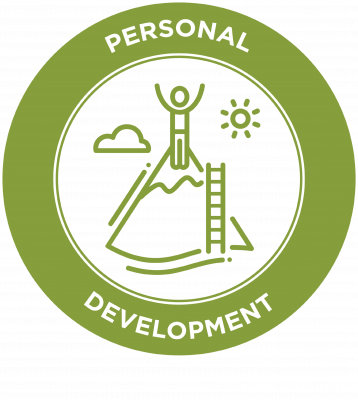 CCM Classification: Personal Development
CCM Classification: Personal DevelopmentBudget Development & Management in the Public Sector
With Jeff Hallin, Assistant Director of Management & Budget, City of Hartford, CT
Friday, November 7, 2025
9:00 AM – 4:00 PM (with 30 minute break)
Hartford Times Building, UConn Hartford Campus
This workshop is designed for non-financial professionals who are interested in understanding essential concepts for public sector budgeting. In this full-day workshop, exploring primarily municipal budget examples, you'll learn to identify the characteristics of an effective budget, the stages of budget development and execution, and how to distinguish between budget approaches. Attendees will explore historical and zero-based budgeting; capital budgeting; performing basic budget calculations; and interpreting typical financial reports. Additionally, attendees will learn strategies for using the budget as an organizational management tool, gain a basic understanding of budget processes to actively participate in your organization’s resource management process, and confidently interpret budgets and financial reports.
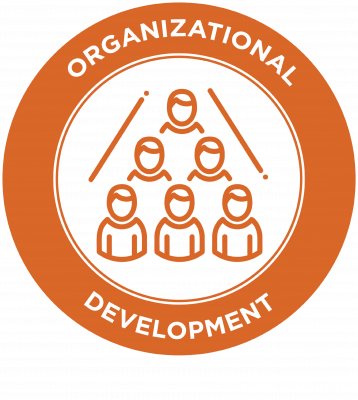 CCM Classification: Organizational Development
CCM Classification: Organizational DevelopmentPrincipals of Project Management
With Michael Schrier, UConn SPP Adjunct Professor, and Director of the YSM/West Campus Development at Yale University
Friday, December 5, 2025
9:00 AM – 4:00 PM (with 30 minute break)
Hartford Times Building, UConn Hartford Campus
In today’s public sector environment, delivering projects on-time and within budget while maintaining a focused project scope is increasingly expected. Strong project management skills are critical towards this end, but often employees lack the knowledge and training for effectively managing projects. Public sector projects are often subject to unique challenges not always found in private sector projects, such as conflicting and difficult to measure goals and outcomes, multiple stakeholders with varied interests, constraints imposed by administrative rules, policies and procedures, and are subject to political interests and close public scrutiny. Successful project management comes down to the effective management of the project scope, schedule, and budget.
An overview of:
- Understanding and applying skills, tools, and procedures needed to manage projects in the public sector.
- Developing and managing public sector project scope, budgets, costs, and schedules.
- Understanding the challenges and distinguishing characteristics of public sector projects.
- Leading, managing, and working successfully in project teams.
 CCM Classification: Organizational Development
CCM Classification: Organizational Development
The Art of Positive Employee Relations for Leaders
With Orlena Cowan-Bailey, Founder & Chief Elevation Officer (CEO), HR Zoom LLC
Friday, January 23, 2026
9:00 AM – 4:00 PM (with 30 minute break)
Hartford Times Building, UConn Hartford Campus
In today’s dynamic workplace, fostering positive employee relations is crucial for organizational success and employee well-being. This full-day workshop is designed to equip leaders with the skills, strategies, and insights necessary to build and maintain productive and harmonious relationships with their team members. Through a combination of interactive sessions, content, role-playing, and practical exercises, participants will learn how to create an environment of trust, open communication, mutual respect, and inclusivity while feeling better equipped to handle difficult conversations.
Who Should Attend:
This workshop is ideal for managers, team leaders, HR professionals, and anyone in a leadership position who is responsible for managing people and is interested in creating a positive and productive work environment.
Learning Objectives:
By the end of this workshop, participants will be able to.
- Understand the Fundamentals of Positive Employee Relations.
- Build Trust and Open Communication.
- Resolve Conflicts Effectively.
- Enhance Employee Engagement and Motivation.
- Implement Fair and Consistent Policies.
- Provide Constructive Feedback and Recognition.
- Promote Work-Life Balance and Employee Well-Being.
- Foster Diversity, Equity, and Inclusion (DEI).
- Develop a Personal Action Plan.
Have fun!! Come ready to learn, lean-in, engage and have fun with other professionals.
 CCM Classification: Organizational Development
CCM Classification: Organizational Development
The Evolving World of AI and Successful Use Cases in the Public Sector
With Mark Raymond, CT Chief Information Officer; Scott Gaul, Chief Data Officer, CT Office of Policy & Management; and Adriana Sanchez-Dominicci, CT Office of Policy & Management.
Friday, February 20, 2026
9:00 AM – 4:00 PM (with 30 minute break)
Hartford Times Building, UConn Hartford Campus
In February 2025 UConn SPP convened local state government leaders and members of the Connecticut Artificial Intelligence Working Group to explore how the State was approaching AI policy development. Reconvening a year later, join for a conversation focusing on recent developments in the sector, updates from recent digital government summits, and review examples of successful implementation of relevant tools and policies in the public sector. As time allows, facilitators will also work with attendees to discuss and explore impacts to implementation at a time when AI legislative regulation is in flux - or blocked entirely.
Recap of learning objectives explored in 2025 for reference:
- Developing responsible use policies and Exploring relevant ethical considerations
- Pursuing quality data and preserving data security
- Practicality of implementation plans
- Impacts on clients and constituent services
- Benchmarking and staying current on market trends
CCM Participant Classification: Community Development 
 CCM Classification: Community Development
CCM Classification: Community Development
From Jargon to Trust: Mastering Public Communication in Good Times and in Crisis
With Maura Fitzgerald, Chief Marketing Officer, CT Department of Public Health
Friday, March 6, 2026
9:00 AM – 4:00 PM (with 30 minute break)
UConn Hartford Campus
Public sector leaders face a critical challenge: how do we communicate complex policies and urgent information in ways that truly reach and resonate with our communities? This workshop combines two essential skills every public administrator needs—crafting clear, accessible messaging for daily operations, and managing communications during times of crisis.
In the morning session, we will tackle the art and science of translating "government speak" into plain language that builds understanding and trust. You will learn practical techniques for making complex and important information accessible to diverse audiences, while exploring how to meet people where they are through the right channels and messaging approaches.
The afternoon shifts to crisis communications, drawing from CDC's proven Crisis and Emergency Risk Communications (CERC) framework. Through real-world case studies and interactive exercises, participants will develop skills to communicate effectively when stakes are highest—whether addressing a public health emergency, natural disaster, or community controversy.
 CCM Classification: Community Development
CCM Classification: Community DevelopmentThe CT Freedom of Information Act: Law, Practice, and Application in the Public Sector (UConn Stamford)
With Amy LiVolsi, Deputy Corporation Counsel, City of Stamford
Friday, March 27, 2026
9:00 AM – 4:00 PM (with 30 minute break)
UConn Stamford Campus
Session Description:
This one-day graduate-level seminar explores the structural foundations and practical applications of Connecticut’s Freedom of Information Act (FOIA) as a cornerstone of government transparency. Designed for public sector professionals, this course emphasizes legal requirements, compliance strategies, transparency and real-world application. Through a combination of lectures, interactive discussions, case studies and practical exercises, participants will gain the knowledge and tools to effectively apply FOIA principles in their daily work - and how it both empowers and limits the public’s right to know.
 CCM Classification: Organizational Development
CCM Classification: Organizational DevelopmentElevate: Mid-Career Growth for Public Servants
With Penny Davis, Founder & CEO - The Aurora Group LLC
Friday, April 17, 2026
9:00 AM – 4:00 PM (with 30 minute break)
Hartford Times Building, UConn Hartford Campus
Mid-career is a critical phase in your professional journey, full of both opportunity and uncertainty. This focused full-day workshop is designed to support public service professionals as they reflect, refocus, and advance their careers to the next stage. Participants will explore strategies for aligning personal values with professional goals, identifying growth opportunities, and navigating career transitions, whether it’s stepping into leadership, shifting roles, or adapting to evolving public service demands. Through interactive discussions, and practical exercises, participants will clarify their professional purpose, assess their current trajectory, and build actionable plans for advancement or reinvention. The session also examines the evolving demands of leadership in government, addressing how to stay resilient, relevant, and impactful in a time of rapid change.
Learning Objectives:
By the end of this workshop, participants will:
- Clarify Career Purpose
- Assess Career Path and Find Growth
- Navigate Career Transitions
- Create Actionable Career Plans
- Build Resilience and Adaptability
 CCM Classification: Personal Development
CCM Classification: Personal DevelopmentAdditional workshops will be shared very soon!
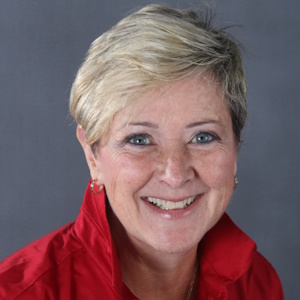
The Basics of Planning & Performance Management Using Results-Based Accountability
With Anne McIntyre-Lahner, Evaluation and Impact Consultant, 35-plus years of experience in state and nonprofit leadership, and author of "Stop Spinning Your Wheels: Using Results Based Accountability to Steer Your Agency to Success"
Friday, October 18, 2024
9:00 AM – 4:00 PM (with 30 minute break)
Hartford Times Building, UConn Hartford Campus
This workshop is designed for managers and administrators who are interested in understanding how to utilize performance management as part of determining whether their efforts are making an impact for their clients/constituents/customers. This full-day workshop begins with an introduction to outcome-focused planning and measurement, using the Results-Based Accountability (RBA) framework; explores the relationship between program planning, performance management, and evaluation; and will then explore four important phases of program evaluation: planning, developing, performing, and utilizing results. Participants will gain a basic understanding of program evaluation so that they can actively participate in, or confidently support, an evaluation, in order to understand whether their work is working. Planning: the purpose of the evaluation; and whether the program is ready for evaluation Developing the evaluation: evaluation rationale and appropriate models; involving staff and stakeholders; where to find evaluation resources Performing the evaluation Messaging and using evaluation results.
Building a Data Culture
With Rachel Leventhal-Weiner, Director of Evaluation and Impact, Federal Funding, CT Office of Policy and Management
Friday, December 13, 2024
9:00 AM – 12:00 PM
Hartford Times Building, UConn Hartford Campus
About the Program
Being a data-informed or data-driven agency starts with data culture. The State of Connecticut’s Research and Evaluation team has been knitting together a data culture through capacity-building workshops for state service colleagues. Great stories captivate an audience, convey a crucial message, and move people to action. Great data stories can do these things too, and in this workshop, participants will learn the conventions of telling a great data story. From crafting a narrative to considering your audience to leveling up your data visualization, participants will leave this session with action items they can incorporate into their work right away. Participants should have familiarity with their organization’s existing data reporting, and are encouraged to bring existing documentation or reports to workshop as a group. Participants can expect to learn about strategies for creating learning agendas, auditing their existing data, establishing strong data governance, preparing for data storytelling and strategizing around continuous quality improvement of their data and processes.
Promoting Positive Labor-Management Relations to Build a Resilient and High-Performing Team
With Matt Hart, Executive Director, Capitol Region Council of Governments (CRCOG), and David Krayeski, Undersecretary for Labor Relations, CT Office of Policy and Management (OPM)
Friday, March 7, 2025
9:00 AM – 4:00 PM (with 30 minute break)
Hartford Times Building, UConn Hartford Campus
This workshop is full. If you would like to be added to a waitlist, please contact maura.maloney@uconn.edu.
This session is designed for managers and those leading in a unionized environment, including new managers that are members of a collective bargaining unit themselves. A healthy and productive-labor management relationship is essential to prevent low morale, workplace disputes, and poor performance. In this session we will review the major laws and principles related to collective bargaining in Connecticut's public sector and discuss approaches to promote positive labor-management relations to help build and maintain a resilient and high performing team.
Creating Your Organizational Health Playbook
With Kenya Rutland, Principal and Chief Enthusiasm Officer, KJR Consulting
Friday, May 22, 2026
9:00 AM – 4:00 PM (with 30 minute break)
Hartford Times Building, UConn Hartford Campus
Session Description:
This full-day workshop will guide participants in understanding the business case for organizational health and developing a practical Organizational Health Playbook. We’ll explore what it means for an organization to be healthy—a cohesive leadership team, clarity among staff, effective communication, and reinforcement through accountability—and why these factors directly impact performance, culture, and results.
Starting with the role of leadership, we’ll examine how healthy organizations are built from the top down, connect these practices to team dynamics, and then to the habits and mindsets of individual contributors. Participants will engage in activities and discussions that highlight why organizational health matters not only for success at work but also for personal well-being. By the end of the day, each participant will leave with concrete strategies and tools to strengthen health at the organizational, team, and individual levels.
Small teams are encouraged to attend this workshop together.
Learning Objectives:
By the end of this workshop, participants will be able to:
• Define organizational health and articulate why it matters for leaders, teams, and individual contributors.
• Assess the current state of their organization’s health and identify key areas for improvement.
• Develop actionable strategies and practices to engage incohesive behaviors, create clarity, improve communication, and holding stakeholders accountable for organizational progress.
• Create a personalized Organizational Health Playbook that connects leadership behaviors to team performance and individual well-being.
• Apply insights from the workshop to foster sustainable organizational and personal growth.
 CCM Classification: Organizational Development
CCM Classification: Organizational DevelopmentOperationalizing DEIB: Practices for Workplace Success (UConn Stamford)
With Kenya Rutland, Principal and Chief Enthusiasm Officer, KJR Consulting
Friday, February 7, 2025
9:00 AM – 4:00 PM (with 30 minute break)
UConn Stamford Campus
Session Description:
Creating an inclusive environment is about fostering a culture where every individual feels valued and empowered. This full-day session is designed to help participants navigate the complexities of building an inclusive workforce.
Participants will define the business case for diversity, equity, inclusion, and belonging (DEIB), learn strategies to address and manage backlash, and understand the generational dynamics shaping the workforce. Through interactive discussions and practical exercises, participants will gain the tools and insights needed to integrate DEIB into their organizational processes effectively, ensuring a more inclusive and supportive workplace for all.
Learning Objectives:
Establishing the Business Case for DEIB:
- Expanding the definition beyond identity.
- Learn how to communicate the benefits of an inclusive workplace to stakeholders, emphasizing innovation, employee engagement, and business performance.
Navigate and Manage Backlash:
- Identify common forms of backlash against DEIB initiatives and understand the underlying causes.
- Develop strategies to address and mitigate resistance, fostering a constructive dialogue about the importance of DEIB.
Create an Inclusive Workforce Culture:
- Exploring workplace dynamics across generational groups to address the expectations and values of various age groups.
- Introduce the "Working Genius" model and the six types of work.
- Introduce strategies for incorporating these dimensions within your team and how work gets done.
Incorporating DEIB into Your Work:
- Understand how to seamlessly integrate DEIB practices into daily organizational processes, including decision-making, communication, and team dynamics to foster a more inclusive and equitable work environment.
This session will provide participants with the knowledge and skills necessary to champion DEIB in their organizations, fostering a culture where everyone can thrive and contribute to shared success.
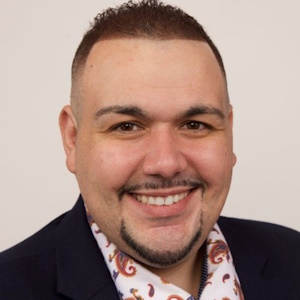
How Leadership Influences Organizational Culture
With Andre Santiago, Vice President & Chief Program Officer at Leadership Greater Hartford (LGH)
Friday, December 1, 2023
9:00 AM – 4:00 PM (with 30 minute break)
Hartford Times Building, UConn Hartford Campus
Leaders in all sectors and at all levels face increased challenges in today’s work world: hybrid, multi-generational teams are the new normal. To create and sustain environments and team dynamics that drive innovation, synergy, and collective success, leaders need high levels of emotional intelligence – not only effective management tools. In this session, attendees will explore how leadership affects organizational culture and will participate in interactive conversations and experiential activities around PIE - Purpose, Influence, and Empowerment. Establishing a shared vision for organizational and individual success leads to a stronger sense of belonging and fulfillment. Understanding personal power and group dynamics creates healthier environments. Incorporating inclusive and equitable practices produces more satisfactory and vibrant ecosystems as we continue to lead diverse teams.
Ethics and Accountability in the Public Sector
With Thomas "TJ" Jones, Adjunct Professor (UConn SPP) and Private Consultant
Friday, February 23, 2024
9:00 AM – 4:00 PM (with 30 minute break)
Hartford Times Building, UConn Hartford Campus
This session will dive into the ethical expectations and obligations of public sector executives, managers, and employees - legal, moral, and practical. The interactive session will provide a framework for ethical decision-making, and provide tools for analyzing various scenarios that may confront public sector actors. Participants will confront fact-based scenarios and quandaries that arise in public service, and be asked to navigate the ethical issues that arise therefrom. Specific issues discussed and analyzed will include conflicts of interest; accepting gifts or favors; and, dealing with lobbyists and special interests. “Bright line” legal rules will be discussed, as well as nuanced ethical “norms” and culture in public sector work. Through this one-day course, participants will learn to better understand the relationship between ethical behavior and the overall success of public sector work. Finally, the session will look into how public sector workers are held accountable for ethical behavior.
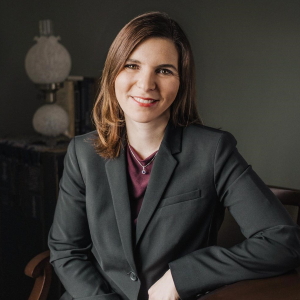
Essential Skills for Grant-Writing Success: Research, Writing and Assessment Tools to Get Your Grant Applications to Stand Out
With Alyssa Goduti, UConn SPP adjunct professor and President & CEO of Ädelbrook
Friday, October 21, 2022
9:00 AM – 12:00 PM
Live virtual session
About the Program
The success of any nonprofit or government organization is contingent on its mission, vision, governance, ability to run quality programs and most importantly on its ability to raise funds. Organizations with the knowledge, skills and expertise to seek out and successfully win grants are more likely to thrive in this increasingly competitive funding environment. This session will help you better understand how to identify grant opportunities and develop winning proposals. Attendees will have the opportunity to practice grant-writing skills based on practical examples from their organizations or experiences.
What will you learn?
This session will provide vital information about how to approach grant writing in today’s competitive environment. You will gain an understanding of how to research and identify appropriate grant opportunities, develop strategies for approaching the grant writing process, and learn how to develop compelling responses to each component of the proposal. We will use real-life examples to help you practice proposal writing for your organizations so that you will be better prepared to deliver compelling and winning proposals.
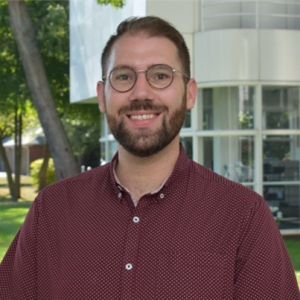
Jason Fredlund

Randi McCray
Leadership Development Roundtable: An Introduction
With Jason Fredlund, Racial Justice Educator, Equity Consultant, LDR Facilitator, and Randi McCray, Founder, RM Consulting Services, CT, LDR Facilitator, both from Five Frogs.
Friday, November 18, 2022
9:00 AM – 4:00 PM (with 30 minute break)
Hartford Times Building, UConn Hartford Campus
About the Program
Our Introduction to Leadership Development Roundtable (LDR) is not a workshop, it is an experience. An experience designed to encourage you to reflect, refocus and refuel on your leadership journey. Many times, leaders find themselves operating on autopilot in their work towards equity.
This program is a condensed version of our 10-month program that will provide a meaningful opportunity to explore the breadth and depth potential of your impact. The day includes small group discussions, activities and exploration of leadership and equity concepts. Key topics include:
- Self-awareness
- Adaptive Leadership
- Diversity, Equity, Inclusion, Belonging (getting to the root)
- Race Equity (micro and macro responsibility)
- How “I” and “We” Lead (spheres of influence and building an impact chain)
Key Themes and Intended Outcomes
- Understanding and practicing adaptive leadership;
- Exploring/identifying how you can lead change;
- Dissecting the importance of race equity and DEIB mindsets; and
- Forging lasting relationships with fellow leaders.
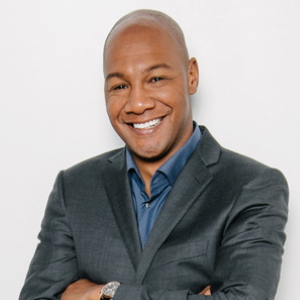
Equity Based Decision Making
With Kenya Rutland, Principal and Chief Enthusiasm Officer, KJR Consulting
Friday, December 9, 2022
9:00 AM – 4:00 PM (with 30 minute break)
Hartford Times Building, UConn Hartford Campus
This workshop is full. If you would like to be added to a waitlist, please contact maura.maloney@uconn.edu.
The word "Equity" is everywhere - but what does it really mean? During this workshop, participants will define equity and differentiate it from equality. We will also explore barriers that reinforce systems of inequity including power dynamics and white supremacy. We will then introduce a model that provides participants with tools to support their organizations in their goals of incorporating equity into decision making. Participants will practice using new strategies to make equity informed decisions in the future.
What You’ll Get
During this workshop, you will:
- Decode unconscious biases by discussing the impacts of our thinking and decision making;
- Learn about the neurological roots of unconscious bias and how it systematically influences our thoughts, perceptions, interactions, and decisions;
- Discover the impact on biases and microaggressions in the workplace;
- Develop skills for recognizing unconscious biases and microaggressions when they appear and learn to apply strategies for intentionally managing and addressing them more effectively; and
- Create a personal and meaningful personal accountability plan for managing moments of bias and addressing microaggressions when they occur.
What You’ll Do
Module 1: Introduction to Unconscious Bias
- Decoding unconscious bias The neurological roots of bias
Module 2: The Impact of Unconscious Bias
- Impact on our actions, opportunities, confidence, and ability to be ourselves.
Module 3: Strategies for Disrupting Bias
- Explore triggers
- Manage the mindset
- Rethink the people
- Revise the process
Module 4: Defining Microaggressions
- Microassaults
- Microinsults
- Microinvalidations
Module 5: Addressing Microaggressions
- Discern
- Disarm
- Defy
- Decide
Key Elements to Building Successful Alliances and Cross-Sector Partnerships
With David Garvey, Director of Partnership and Compliance of Career Resources Inc.’s WE RISE Together program
WORKSHOP HAS BEEN CANCELLED
Friday, March 10, 2023
9:00 AM – 12:00 PM
Hartford Times Building, UConn Hartford Campus
We will discuss what makes partnerships and alliances work through the voices of seasoned nonprofit alliance builders. We will then examine the inner-workings of a living Connecticut cross-sector partnership of government, nonprofit, and private enterprise (WE RISE Together) that is assisting formerly justice-involved individuals restart their lives; providing social support, workforce training and a pathway to employment. We will see how this multi-sector eco-system works through system change. We will then use the collective knowledge of the class to examine your initiatives and those of your fellow classmates; assisting you in bringing your cross-sector partnership to its next stage.
Leveraging the Power of Well-Made Surveys
With Jennifer Dineen, Professor, UConn School of Public Policy
Friday, May 19, 2023
9:00 AM – 4:00 PM (with 30 minute break)
Hartford Times Building, UConn Hartford Campus
This full-day workshop will provide an overview of the potential techniques for measuring attitudes and behaviors to inform the decision-making process. Focus will be given to the basics of question wording, instrument construction and study design for surveys. You will receive guidance on identifying the appropriate stakeholders and on determining which measure of stakeholder attitudes is most appropriate. You will also have the opportunity to apply various learned measurement skills to real-world scenarios.

Essential Skills for Grant-Writing Success: Research, Writing and Assessment Tools to Get Your Grant Applications to Stand Out
With Alyssa Goduti, UConn SPP adjunct professor and President & CEO of Ädelbrook
Friday, October 8, 2021
10:30 AM – 1:30 PM (with 30 minute break)
Live virtual session
About the Program
The success of any nonprofit or government organization is contingent on its mission, vision, governance, ability to run quality programs and most importantly on its ability to raise funds. Organizations with the knowledge, skills and expertise to seek out and successfully win grants are more likely to thrive in this increasingly competitive funding environment. This session will help you better understand how to identify grant opportunities and develop winning proposals. Attendees will have the opportunity to practice grant-writing skills based on practical examples from their organizations or experiences.
What will you learn?
This session will provide vital information about how to approach grant writing in today’s competitive environment. You will gain an understanding of how to research and identify appropriate grant opportunities, develop strategies for approaching the grant writing process, and learn how to develop compelling responses to each component of the proposal. We will use real-life examples to help you practice proposal writing for your organizations so that you will be better prepared to deliver compelling and winning proposals.
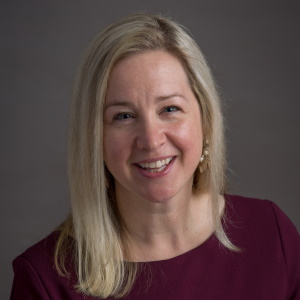
Leading in Unclear & Challenging Times
With Anne Yurasek, Principal of Fio Partners
Friday, October 15, 2021
1:00 – 4:00 PM
Live virtual session
About the Program
A challenging and rapidly-changing environment has become the norm -- and with it, the need for resilient leaders and adaptive leadership. Adaptive leadership is a practical and empowering framework to mobilize teams during challenging times. It considers the range of external contexts and conditions that influence an organization and employs principles like emotional intelligence and organizational learning and collaboration to address them. During this interactive seminar, participants will explore the traits and practices of adaptive and resilient leaders, elements of adaptive leadership including distinguishing technical problems from adaptive challenges, outside-in thinking, engaging stakeholders, and fostering psychological safety and a culture of learning to both innovate and address risk.

Disrupting Bias & Responding to Microaggressions
With Kenya Rutland, KJR Consulting
Friday, November 5, 2021
9:00 AM – 4:00 PM (with 30 minute break)
Hartford Times Building, UConn Hartford Campus
Light lunch provided (may change based on public health guidance)
Course Overview
At any given moment our brains are receiving 11 million pieces of information. Yet, we can only consciously process about 40 of those pieces. To make sense of the rest, we rely on our subconscious to filter information. Our brain does this using generalizations, beliefs, and stereotypes. This approach to processing information and making decisions can lead to biases we may not be even aware of. These unconscious biases are normal and in many cases they are useful. However, they can cause people to overlook great ideas and ignore an individual’s potential. They can also result in microaggressions. Microaggressions are everyday slights, indignities, put-downs, and insults that demean or offend others. They are often fueled by our unconscious bias, which means we may not even be aware of them and how they lead to exclusionary behavior.
Who Should Take This Course
Individuals that desire to make better decisions by becoming aware of their own biases, responding to microaggressions, and learning practical techniques to operate in a more inclusive manner.
What You’ll Get
During this workshop, you will:
- Decode unconscious biases by discussing the impacts of our thinking and decision making;
- Learn about the neurological roots of unconscious bias and how it systematically influences our thoughts, perceptions, interactions, and decisions;
- Discover the impact on biases and microaggressions in the workplace;
- Develop skills for recognizing unconscious biases and microaggressions when they appear and learn to apply strategies for intentionally managing and addressing them more effectively; and
- Create a personal and meaningful personal accountability plan for managing moments of bias and addressing microaggressions when they occur.
What You’ll Do
Module 1: Introduction to Unconscious Bias
- Decoding unconscious bias The neurological roots of bias
Module 2: The Impact of Unconscious Bias
- Impact on our actions, opportunities, confidence, and ability to be ourselves.
Module 3: Strategies for Disrupting Bias
- Explore triggers
- Manage the mindset
- Rethink the people
- Revise the process
Module 4: Defining Microaggressions
- Microassaults
- Microinsults
- Microinvalidations
Module 5: Addressing Microaggressions
- Discern
- Disarm
- Defy
- Decide
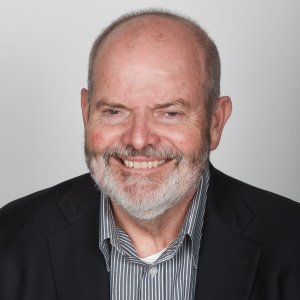
Launching and Sustaining a Performance Management System
With Lyle D. Wray, PhD, Executive Director, Capitol Region Council of Governments
Friday, December 10, 2021
9:00 AM – 12:00 PM
Live virtual session
Setting up and sustaining a performance management systems for organizations in the public and nonprofit sectors can be challenging. To help get a successful result, we will consider among other elements suggest a way to look at audiences for performance management information, offer possible shortcuts to getting to a viable launch of a system and carefully consider the use of the information the is to be generated.
This half-day seminar will offer seven main suggestions for launching and maintaining a performance measurement system:
- Situation assessment
- Identify motivations for the performance management system
- Plan a sequence of steps to establish and expand a performance management system
- Use effective program interventions that are strategically organized
- Use or adapt existing performance management system frameworks
- Partner with residents and other stakeholders to the performance management system
- Leverage advanced information technology tools in the performance management system
The approach will be interactive and participants are invited to bring a current or proposed performance management system for an organization along to the discussion.
The presenter has extensive experience in performance management at state and nonprofit levels, has authored books and chapters on the topic, and has taught a graduate course in the field.
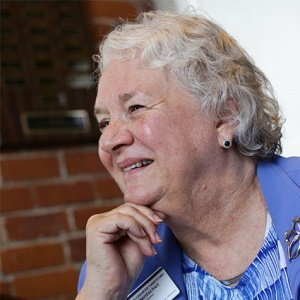
Doe Hentschel

Andre Santiago
Leading Positive Organizational Culture
With Dr. Doe Hentschel, Leadership Preceptor, and Andre Santiago, Vice President for Programs, Leadership Greater Hartford
Friday, February 4, 2022
9:00 AM – 4:00 PM (with 30 minute break)
This has been changed to be a live virtual workshop, not in-person.
About the Program
Course Overview
The global pandemic has exposed tremendous shortcomings in the workplace while creating new opportunities for positive transformation. New ways to interact and communicate with internal and external constituencies had to be invented. And as the possibility of returning to a pre-pandemic workplace approached, it became obvious that some of the changes we were forced to institute may have had the unintended consequence of enhancing our organizational cultures. This workshop will provide an understanding of the foundations for a positive organizational culture. Drawing extensively on the award-winning book The Culture Code by Daniel Coyle, the workshop will focus on “building ownership, providing support, and aligning group energy toward the arduous, error-filled, ultimately fulfilling journey of making something new.”
Who Should Take This Course
Individuals at all levels play a vital role in either creating, sustaining or changing the culture of an organization. If you want to learn more about healthy and vibrant organizational cultures, as well as strategies and best practices to achieve them, this workshop is for you.
What You’ll Get
During this workshop, you will understand:
- The importance of having a healthy organizational culture.
- Definitions and assessments about organizational culture.
- The dimensions of workplace ”safety.”
- Trust-building and its importance in workplace relationships
- Procedures to ensure the continuity and long-term success of an organization's culture.
What You’ll Do
Drawing on Daniel Coyle’s award-winning book, The Culture Code, the workshop identifies the key elements of successful organizational cultures:
- Build safety; people feel they belong and are valued
- Share vulnerability: shared risk builds trust and drives collaboration
- Establish purpose: embrace shared goals and values
Through interactive and experiential group activities and conversations, self and organizational assessments, participants will expand their understanding of how to influence positive change within their organizations.
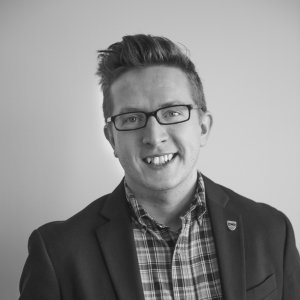
Demystifying Data Management and Security for Non-IT Managers
With Christopher Brechlin, Director of Data and Digital Systems, COMPASS Youth Collaborative
Friday, March 4, 2022
9:00 AM – 4:00 PM (with 30 minute break)
Hartford Times Building, UConn Hartford Campus
About the Program
Your organization's data can guide you toward better outcomes for the people you serve or give you a competitive edge in funding applications. It can also be a tempting target for cyber criminals looking to ransom your systems or steal sensitive information. Managers don't need deep technical backgrounds to be good stewards of their data, but they do need to understand how it's generated, stored, and best protected.
Data management in the modern organization is no longer an exclusive IT or research function. Front-line staff, marketing and development teams, executives, finance and administrative staff are all essentially managing data on a daily basis and they need to be responsible for its safety and efficacy. The challenge for managers is that the landscape of software and terminology is rapidly evolving, making it difficult for non-technical staff to keep up with the growing list of tools they need to effectively leverage data in their day-to-day jobs. Luckily, the fundamental concepts and technologies used to manage data aren't complex and don't require highly specialized training to understand.
This course is for everyone from the accidental data and program managers at small nonprofits, to the department heads at large agencies. This is not a database administration or cyber security course. You will learn how to map data flows in your organization and how data is generated through operational processes, how to communicate with technical staff and consultants by speaking their language, and how to identify potential security risks among your staff. The primary objective is to help maximize the value you extract from your data by introducing aspects of data management that you didn't know you needed to know.

Practical Performance Evaluation for Practitioners and Funders
With Anne McIntyre-Lahner, Evaluation and Impact Consultant, 35-plus years of experience in state and nonprofit leadership, and author.
Friday, March 25, 2022
9:00 AM – 4:00 PM (with 30 minute break)
Hartford Times Building, UConn Hartford Campus
This full-day session will explore evaluation and performance management of publicly funded programs, including:
- Evolving concepts and practices in evaluation and performance management
- The importance of designing programs with outcomes and evaluation in mind; and
- Engaging staff and providers in using data to understand performance
- Using results to improve program performance
Learning Objectives:
- Ability to describe the concepts of, and appropriate use of, program evaluation, performance management, and program monitoring; and differentiate between them
- Understand and apply outcome-focused program design to new and redesigned programs
- Develop strategies to engage staff and providers in evaluation efforts
- Ability to understand and utilize results to improve program performance
MORNING:
We will explore the topic of evaluation in general, including
- Current topics in the field of evaluation
- Different types of evaluation, including different factors and contexts
- The difference between performance monitoring and evaluation
- Leveraging a performance system to support evaluation efforts
- Understanding why and when to conduct an evaluation
- Deciding whether you need an outside evaluator
- The importance of involving staff and partners
- Dealing with data anxiety and discomfort around working with data and evaluators
AFTERNOON:
The afternoon will include practical steps and actions as part of an effective program performance management program. These include:
- Review of performance measures in the context of program evaluation
- Understanding performance and data contextually
- Leveraging existing data
- Means-to-End thinking
- Post-evaluation review
- Using evaluation results to improve performance
WHO SHOULD ATTEND:
- Practitioners and funders who:
- want to begin, or expand, use of data to understand performance
- want to feel comfortable with evaluation and performance management
- are interested in learning how to use results to improve performance
- want to know if participants are better off because of their program
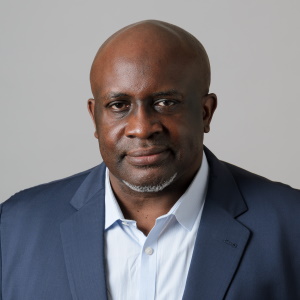
Strategic Diversity Planning & Management
With Frank Tuitt, VP, Chief Diversity Officer and Professor, UConn
Friday, April 15, 2022
9:00 AM – 4:00 PM (with 30 minute break)
Hartford Times Building, UConn Hartford Campus
About the Program
The current activism across the Nation advocating for a greater commitment to becoming just and antiracist organizations has highlighted the importance of meaningful, actionable engagement of diversity, equity, and inclusion initiatives. In this workshop, participants will learn how to align diversity initiatives within high level priorities of organizations, build partners in diversity initiatives across systems, and strategic areas to further equity and inclusion goals.

Responding to Microaggressions: Strategies for Navigating Instances of Exclusion
With Kenya Rutland, KJR Consulting
Friday, December 18, 2020 ***REGISTRATION CLOSED - CLASS IS FULL***
10:30 AM – 1:30 PM (with 30 minute break)
Live virtual session
Course Overview
Microaggressions are verbal, behavioral, or environmental indignities that communicate derogatory or negative prejudices towards a specific group. These instances can be intentional or unintentional based on our own biases. In this course, participants will decode unconscious biases, define microaggressions and how they show up around us, and discuss strategies for navigating incidents of exclusion. Participants will engage in group discussions to respond to case studies and conclude with defining what it means to be an ally.
Who Should Take This Course
This course is designed to meet participants wherever they are on their diversity, equity, and inclusion journey.
What You’ll Get
During this workshop, you will:
- Decode unconscious biases by discussing the impacts of our thinking and decision making;
- Gain an understanding of microaggressions and stereotypes;
- Discuss the impact on biases and microaggressions in the workplace;
- Engage in active dialogue within small groups as a means of responding to case studies;
- Address microaggressions and learn how to actively respond; and
- Discover how to become an ally.
What You’ll Do
Module 1: Setting the Foundation
- Understanding implicit bias and stereotypes
- Decoding Unconscious Bias
Module 2: Unconscious Bias & Microaggressions
- Defining microaggressions
- Understanding how they show up
- Death by 1000 Paper Cuts
Module 3: Relating to Our Organizations
- Review case studies.
- Learn how to identify microaggressions, microinequities, microsignals, and microaffirmations
Module 4: Addressing Microaggressions
- Tools for responding to microaggressions
- Discussing strategies for upstanding
- Becoming an ally

Managing Unconscious Bias
With Kenya Rutland, KJR Consulting
Friday, March 12, 2021 ***REGISTRATION CLOSED - CLASS IS FULL***
10:30 AM – 1:30 PM (with 30 minute break)
Live virtual session
Course Overview
At any given moment our brains are receiving 11 million pieces of information. Yet, we can only consciously process about 40 of those pieces. To make sense of the rest, we rely on our subconscious to filter information. Our brain does this using generalizations, beliefs, and stereotypes. This approach to processing information and making decisions can lead to biases we may not be even aware of.
Unconscious biases are a product of our upbringing and experiences. Having them is normal, and in many cases they are useful. But at the same time, unconscious biases can cause people to overlook great ideas, ignore an individual’s potential, and create a less than ideal work experience for their colleagues. Biases can impact every facet of a business, from recruiting staff, leadership effectiveness, and communication, to decision making and workplace interactions. It takes effort, but inclusive individuals learn to override their bias setting by recognizing when bias is at play and asking the right questions to make better decisions.
Who Should Take This Course
Individuals that desire to make better decisions by becoming aware of their own biases and learning practical techniques to operate in a more inclusive manner.
What You’ll Get
During this workshop, you will:
- Create a common language and explore experiences around diversity, equity, and inclusion;
- Attain greater self-awareness and discover how to make choices that will help us leverage the power of diversity in our personal lives and work;
- Explore how diversity impacts our own lives, workplace interactions, and many of our choices and behaviors
- Introduce the concepts of unconscious bias and cultural dexterity, and engage in discussions to explore how our personal experiences define how we show up in the world;
- Develop strategies for overcoming bias.
What You’ll Do
Module 1: Foundation and Common Language
- Define diversity, equity and inclusion
- Four layers of diversity
- Diversity and your life
Module 2: The Impact of our Experiences
- Exploring our blind spots
- Worldview hinderances
- Levels of engaging
Module 3: Introduction to Unconscious Bias
- Unconscious bias defined
- Types of bias
- Sources of unconscious bias
- Three levels of relationships
Module 4: Strategies for Disrupting Bias
- Exploring triggers
- Managing the mindset
- Rethinking the people
- Revising the process

Essential Skills for Grant-Writing Success: Research, Writing and Assessment Tools to Get Your Grant Applications to Stand Out
With Alyssa Goduti, UConn DPP adjunct professor and President & CEO of Ädelbrook
Friday, March 26, 2021
10:30 AM – 1:30 PM (with 30 minute break)
Live virtual session
About the Program
The success of any nonprofit or government organization is contingent on its mission, vision, governance, ability to run quality programs and most importantly on its ability to raise funds. Organizations with the knowledge, skills and expertise to seek out and successfully win grants are more likely to thrive in this increasingly competitive funding environment. This session will help you better understand how to identify grant opportunities and develop winning proposals. Attendees will have the opportunity to practice grant-writing skills based on practical examples from their organizations or experiences.
What will you learn?
This session will provide vital information about how to approach grant writing in today’s competitive environment. You will gain an understanding of how to research and identify appropriate grant opportunities, develop strategies for approaching the grant writing process, and learn how to develop compelling responses to each component of the proposal. We will use real-life examples to help you practice proposal writing for your organizations so that you will be better prepared to deliver compelling and winning proposals.

Responding to Microaggressions: Strategies for Navigating Instances of Exclusion
With Kenya Rutland, KJR Consulting
Friday, April 9, 2021
10:30 AM – 1:30 PM (with 30 minute break)
Live virtual session
Course Overview
Microaggressions are verbal, behavioral, or environmental indignities that communicate derogatory or negative prejudices towards a specific group. These instances can be intentional or unintentional based on our own biases. In this course, participants will decode unconscious biases, define microaggressions and how they show up around us, and discuss strategies for navigating incidents of exclusion. Participants will engage in group discussions to respond to case studies and conclude with defining what it means to be an ally.
Who Should Take This Course
This course is designed to meet participants wherever they are on their diversity, equity, and inclusion journey.
What You’ll Get
During this workshop, you will:
- Decode unconscious biases by discussing the impacts of our thinking and decision making;
- Gain an understanding of microaggressions and stereotypes;
- Discuss the impact on biases and microaggressions in the workplace;
- Engage in active dialogue within small groups as a means of responding to case studies;
- Address microaggressions and learn how to actively respond; and
- Discover how to become an ally.
What You’ll Do
Module 1: Setting the Foundation
- Understanding implicit bias and stereotypes
- Decoding Unconscious Bias
Module 2: Unconscious Bias & Microaggressions
- Defining microaggressions
- Understanding how they show up
- Death by 1000 Paper Cuts
Module 3: Relating to Our Organizations
- Review case studies.
- Learn how to identify microaggressions, microinequities, microsignals, and microaffirmations
Module 4: Addressing Microaggressions
- Tools for responding to microaggressions
- Discussing strategies for upstanding
- Becoming an ally

Building Effective Management and Leadership Skills: What is Required for the Next Generation of Public and Nonprofit Executives
With Thomas L. Phillips of TL Phillips Consulting Services
Friday, May 14, 2021
10:30 AM – 1:30 PM (with 30 minute break)
Live virtual session
Please Note:
This workshop will require participants to purchase and complete the CliftonStrengths assessment survey prior to the workshop. The survey fee will be an additional $19.99 (purchased separately). See more information in the following "About the Program" section.
About the Program
Overview
Connecticut is demographically one of the oldest states in the country. Many public and nonprofit organizations are facing “brain drain” challenges related to the loss of senior executives, including their knowledge and expertise, as more “baby boomers” continue to retire. In some cases, these organizations do not have well developed succession plans and are not properly enhancing existing and developing new required management and leadership skills/competencies of their mid-level executives, which would allow them to more effectively transition into senior executive level positions. In addition, the current pandemic has caused much disruption and uncertainty, requiring many organization’s management teams to both pivot and adapt to their new normal. It is therefore critical for both sectors to develop these individuals and their skills more proactively and aggressively, to ensure their organizations stay competitive, effectively serve their customers, and achieve long term sustainability.
Description
This half-day workshop includes six essential Learning Modules (LM) that cover a variety of important and timely management and leadership related topics. Each participant will be required to take the Top 5 CliftonStrengths assessment survey in advance of the workshop with the results collectively shared and discussed. This tool allows you to identify and play to your top 5 strengths at work and in your personal life. There is a cost of $19.99 to purchase and take the survey. The assessment tool should be purchased online by participants and completed no later than a week before the workshop, so you have time to review the results. The assessment can be purchased using the following link: https://store.gallup.com/p/en-us/10265/cliftonstrengths-for-students-top-5.
The workshop is also designed to be interactive through group exercises and collective dialogue, as much can also be learned from the participants.
The following are the list of Learning Modules that will be presented:
- Top 5 CliftonStrengths Assessment Survey Results
- Developing Critical Leadership Skills
- Organization/Individual Core Values
- Importance of Innovation
- Convener Skills
- Facilitation Skills
Outcome
Participants will enhance their existing and learn new management and leadership skills through both the LM sessions/ exercises and collective dialogue, which will help prepare them to more effectively assume higher senior executive roles and responsibilities in support of their organization’s mission and brand.
Who Should Attend?
Senior/mid-level managers being identified/cultivated by your organization or those individuals aspiring to higher level executive leadership career positions. Also helpful for current senior executives interested in honing their existing management and leadership skill sets.
2025-2026 Program Costs
| Attendee | Full Day Class | Half Day Class |
| General Public | $199 | $99 |
| Members and Grantees of Partner Organizations | $149 | $69 |
| UConn School of Public Policy Alumni | $99 | $49 |
| UConn School of Public Policy Current Students | $0 | $0 |
Location and Parking
In-person workshops are held at:
University of Connecticut Hartford Campus
Hartford Times Building
10 Prospect Street, Hartford, CT 06103
Please use the HTB entrance located on Front Street, across from Barnes & Noble. Follow posted signs to the program.
Parking
Connecticut Convention Center Parking Garage
100 Columbus Boulevard, Hartford, CT 06103
Collaboration with Connecticut Conference of Municipalities (CCM)
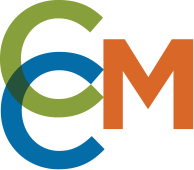
UConn SPP is proud to partner with the Connecticut Conference of Municipalities (CCM) in support of their Certified Civic Policy Leader (CCPL) Certification. This certification is an elevated certificate within CCM's "Connecticut Municipal Leadership Academy" suite of programs. CCM members pursuing their CCPL must have already completed the Certified Connecticut Municipal Official (CCMO) program as a prerequisite in order to enroll. Members will need to attend in-person PSELC workshops., one training in each of the three developmental categories. Interested enrollees will work with CCM and UConn staff to coordinate registration directly. CCM-related questions can be sent to Danielle Walker of CCM via this contact page: https://www.ccm-ct.org/About-CCM/Staff.
Our Partners
CT Department of Public Health
CT Department of Social Services
CT Division of Criminal Justice
CT Office of the State Comptroller
CT Office of Policy and Management
CT Town and City Management Association (ICMA)
Fairfield County Community Foundation
For more information or questions, please contact Maura Maloney at maura.maloney@uconn.edu or 959-200-3817.

